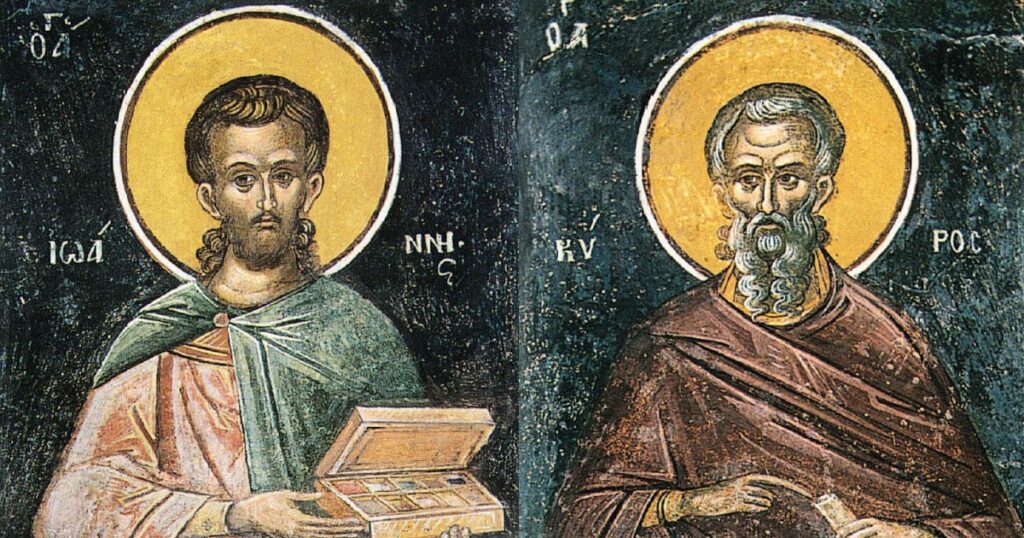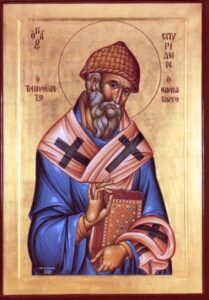Sts. Cyrus and John the Holy Unmercenaries – January 31

Saints Cyrus and John belong to the category of saints called Wonderworking Unmercenaries (thaumatourgoi anargyroi) because they healed the sick free of charge.
The principal source of information regarding the life, passion and miracles of Sts. John and Cyrus is the Encomium written by St. Sophronius, Patriarch of Jerusalem (d. 638).
Cyrus practiced the art of medicine and had a workshop which was later transformed into a church dedicated to the Three Holy Youths in the Furnace. He ministered to the sick without pay and at the same time labored with all the ardor of an apostle of the Faith, and won many from pagan beliefs. He would say, “Whoever wishes to avoid being ill should refrain from sin, for sin is often the cause of bodily illness.” Denounced to the prefect of the city during the time of the persecutions of Emperor Diocletian, he fled to Arabia where he took refuge in a town near the sea called Tzoten. There, having become a monk, he abandoned medicine and began a life of asceticism.
John belonged to the army, in which he held a high rank. The “Synaxarium” cited above adds that he was one of the familiars of the emperor. Hearing of the virtues and wonders of Cyrus, he went to Jerusalem in fulfillment of a vow, and thence passed to Alexandria and then to Arabia where he became the companion of St. Cyrus in the ascetic life.
Again during the persecution of Diocletian three holy virgins, fifteen-year-old Theoctista (Theopista), Theodota (Theodora), thirteen years old, and Theodosia (Theodoxia), eleven years old, together with their mother Athanasia, were arrested at Canopus and brought to Alexandria. Cyrus and John, fearing these girls on account of their youth might deny the Faith during their trials, resolved to go into the city to comfort them and encourage them in undergoing martyrdom. Sts. Cyrus and John also were arrested and after many torments, they were all beheaded on the 31st of January.
The bodies of the two martyrs were placed in the church of St. Mark the Evangelist in Alexandria.







